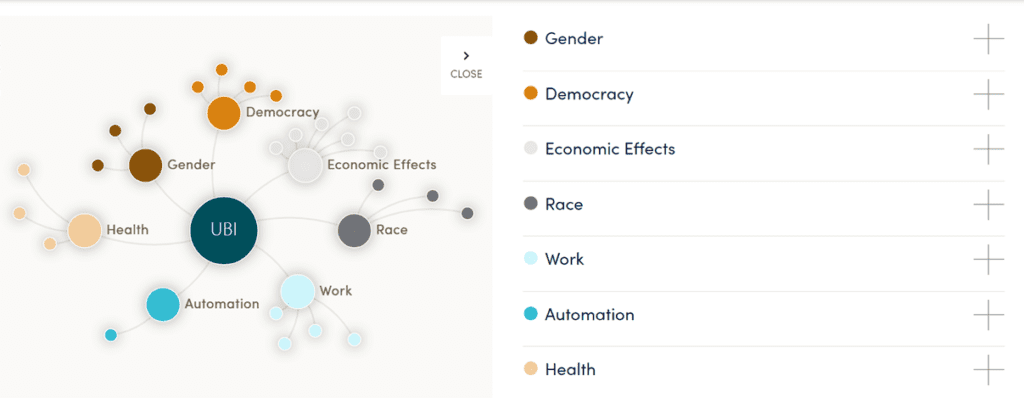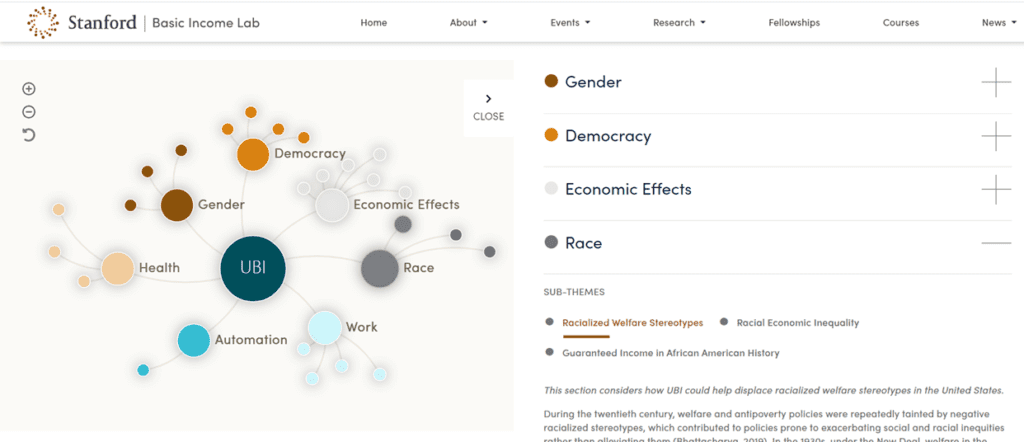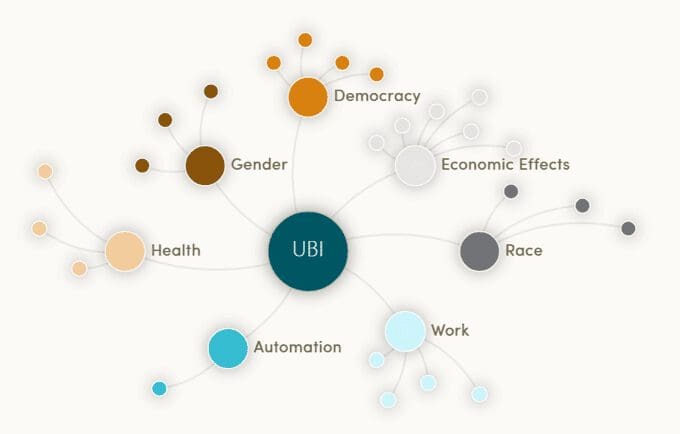New tool from Stanford compiles extensive research and shows the connections between UBI and a variety of social issues.
The UBI Research Visualization bolsters basic income research by presenting existing knowledge in an accessible platform organized across multiple themes and subthemes. It presents comprehensive summaries of articles, research papers, and books produced on UBI to date; enables viewers to see the diversity of approaches that have been taken on testing UBI and related policies; and allows users to get a good sense of the key tenets of the debate.
The user-friendly platform aspires to provide a wide variety of stakeholders (researchers and students, experimenters, policymakers and philanthropic organizations, among others) with just-in-time access to UBI research. It is the result of two years of research led by the Faculty Director and Program Manager and carried out by a large team of Lab fellows since 2018. Central to the extensive summaries presented below is the commitment to bridging the gap between facts and values. The summaries present existing empirical facts and data around UBI and the broad value-based questions and arguments that surround UBI along critical themes like gender, race and health.
To see the interactive tool, please visit: https://basicincome.stanford.edu/research/ubi-visualization/

Attributions: The research and design processes and the written summaries presented in the visualization included contributions from faculty director and PI for this project, Juliana Bidadanure; program manager, Sarah Berger Gonzalez; postdoctoral fellow, Rebecca Hasdell; and, graduate fellows Neryvia Pillay Bell, Guillermo Gomez, Sophia Hunt, Yi Jee Kee, Olga Lenczewska, Joan O’Bryan, Prach Panchakunathorn, Michelle Reddy, Avshalom Schwratz and Lara Spencer.
The Basic Income Lab also relied on the careful scrutiny of a range of UBI experts for reviewing the research and providing timely suggestions to strengthen the work, including Jhumpa Bhattacharya (Insight Center for Community Economic Development), Emilee Booth Chapman (Stanford University), Evelyn Forget (University of Manitoba), and Almaz Zelleke (New York University).


Sponsors: This Research Visualization was made possible with the support of the Robert Wood Johnson Foundation, the Jain Family Institute and the Economic Security Project.
____________________________________________________________
About The Stanford Basic Income Lab
The Basic Income Lab reviews the vast interdisciplinary research produced on UBI, identify under-explored research questions, and help shape future directions in basic income research





















